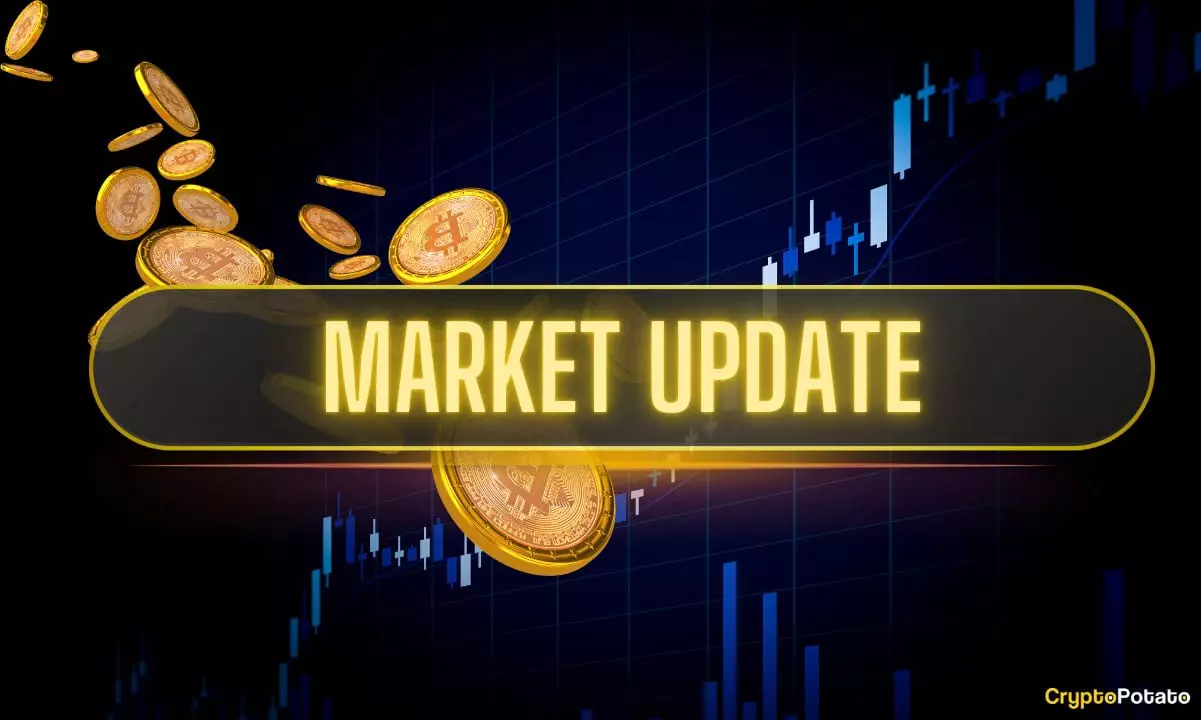The crypto markets have exhibited their characteristic volatility this week, but the turmoil can be attributed not simply to economic data—this time, a political “soap opera” has taken center stage. This chaotic episode involves two of the most prominent figures on social media: the U.S. President and a billionaire tech mogul. Their public altercation managed to spark a ripple effect that impacted various digital currencies dramatically. Anyone who closely follows the crypto landscape knows well that the intersection of politics and finance often leads to tempestuous conditions, and this week was no exception.
Understanding the underlying tension requires us to step back for a moment and observe the events of last week. Bitcoin was hovering serenely around $104,000, after a series of minor rejections from the psychologically significant $110,000 mark. This peaceful existence would soon be disrupted. As the week unfolded, Bitcoin struggled to break the $106,500 threshold, only to plummet sharply to nearly $100,400, propelled downward by the squabbling between the President and Elon Musk. With Musk insinuating connections to unsavory Epstein files and Trump threatening to retract governmental contracts from Musk’s companies, it’s evident that political discourse has grave consequences for the markets.
The Dark Cloud of Political Drama
The ongoing feud had subtle yet profound repercussions for Bitcoin and the broader crypto market. Musk’s incendiary comments coupled with vehement responses from the President have created a atmosphere of distrust and volatility, leading to liquidations and a sell-off in various cryptocurrencies. Tradable assets like Dogecoin and Avalanche have taken a serious hit, shedding over 12% and 10% in value, respectively. Meanwhile, Bitcoin’s stability was ironically robust compared to others, with a relatively modest decline of 1.7%. Nonetheless, these fluctuations remind us that the volatility inherent in cryptocurrencies always has a catalyst—whether from market trends or, in this case, political drama.
Despite the dark cloud hanging over the markets, there’s a silver lining to consider. The dynamics underpinning Bitcoin’s transaction history point to noteworthy movements that could hint at future resilience. Over 22,500 Bitcoins exited exchanges in one day; while the price remained relatively dormant, this shift reveals a growing inclination for self-custody among investors. It speaks volumes about the general sentiment among Bitcoin holders: a willingness to endure short-term price dips in favor of long-term asset security.
The Impact of Monetary Policy
As turbulent as political drama can be, let’s not ignore the broader economic landscape where monetary policy continues to play a pivotal role. This week, the European Central Bank made headlines with its eighth interest rate cut, dropping rates to 2%—the lowest in over two years. While this typically would buoy riskier assets like Bitcoin, the reaction was muted, which is concerning for an asset class that prides itself on being a hedge against traditional financial policies.
Interestingly, the U.S. Federal Reserve remains steadfast, maintaining its interest rates. The dissonance between these two major economies mirrors the volatility expressed in the crypto markets. When authorities fail to synchronize their economic strategies, chaos ensues, especially in sectors that are already as unpredictable as cryptocurrencies.
Institutional Moves: A Double-Edged Sword
In a more optimistic light, the acquisition of Bitstamp by Robinhood for $200 million signals a strong institutional commitment to the crypto sphere. However, this news comes alongside chilling reports of rampant profit-taking as Bitcoin’s price continues to swing sharply from its recent highs. The dichotomy of institutional players trying to validate cryptocurrency against a backdrop of fear and loathing observed in the retail market could further confuse prospective investors.
Moreover, the announcement by the world’s largest corporate holder of Bitcoin to pursue an IPO for additional BTC” raises eyebrows. While this could theoretically leverage capital into Bitcoin acquisitions, it also hints at a sense of urgency among corporations to consolidate their positions in an increasingly unstable market. The specter of inflation is not just a concern for personal finances—corporate entities, too, are scrambling to adapt to unfriendly economic climates.
A Crumbling Foundations and Growing Divide
The uncanny relationship between political chaos and financial stability has never been clearer than in this week’s crypto market events. Political tensions are not just a side show; they are integral to how markets operate today. As Bitcoin continues to oscillate around the $104,000 mark, we must confront the uncomfortable truth that the crypto landscape is precarious. Market reactions to political discourse may become more volatile as friction escalates. It is essential for investors to remain vigilant, understand the shifting tides, and prepare for even more uncertainty. The current environment, fraught with rivalry and distrust, is a terrain where only the most resilient players might endure.















